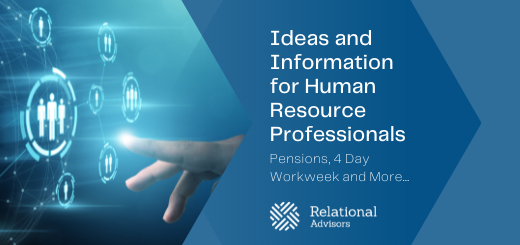Ideas and Information for Human Resource Professionals

Employer Trend: Four-Day Workweek
The topic of workplace flexibility is top of mind as employees recover from an intense adjustment to a coronavirus (COVID-19) work environment. One creative way employers have supported a better work-life balance is by shortening the hours or days in a workweek, so employees have more personal time. The four-day workweek is gaining traction and companies like Unilever and Kickstarter are testing a condensed work schedule to see how it affects business. Early research shows that workers are happier with a four-day workweek. No surprise there. But data also show these unexpected benefits emerge from early adopters.

The Great Resignation
The employment market has taken the American worker on a roller coaster ride over the last year and a half. Unemployment rates hit record highs in 2020 with the spread of the coronavirus (COVID-19) pandemic. Nearly a year later, the Job Openings and Labor Turnover Survey reports new jobs have increased to “a record 9.3 million, as the economy rapidly recovered from its pandemic depths.” To add another piece to the employment puzzle, nearly 4 million workers quit their jobs in the same month, coining the term “the great resignation.” What caused this dramatic exit?

Music: Should You Whistle While You Work?
It can be difficult to get a group of people to agree on a genre of music to play at work. Classical or pop music? Country or hip hop? And what is the consensus on the volume? What is distracting for some may be motivating for another. Scientists have investigated the link between music and productivity since World War II.

What Happened to Pensions?
A pension program today is like a valuable gem, rare and hard to find. Looking back 40 years, over 80% of employees at large companies were eligible for a pension upon retirement. It was the “norm.” An employee could plan to work 30 years and be guaranteed a set monthly retirement payment from their former employer. The payment formula was based on attributes like salary and years of experience. Today, pensions are rare in the private sector, and more commonly found in the public or government sector. Whatever happened to pension plans?

Information is provided by Relational Advisors and written by Mike Rankin, a non-affiliate of Cetera Advisor Networks LLC.

